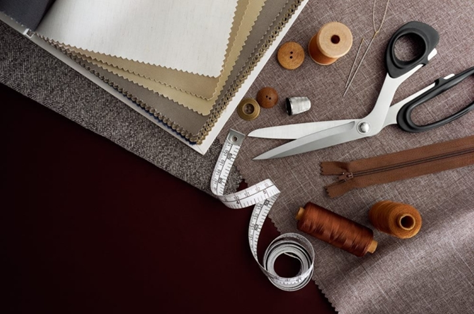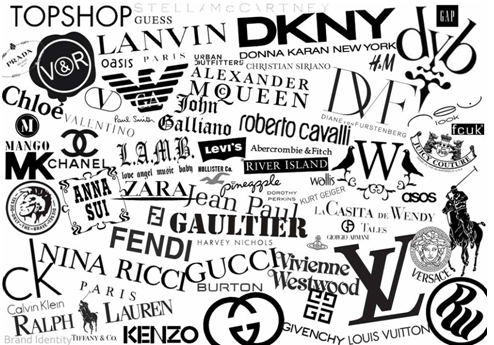

HOW TO SELECT YOUR CLOTHING MANUFACTURER
As a new fashion brand, finding the right clothing manufacturer that’s suitable for your products, is a major factor in the future success of your business.
You should think of them as a partner that you can build a relationship with, and not just a service provider. The decisions they make and how they operate their business, will have a direct effect on yours, so it’s important to assess how they work and how capable they are, to ensure they’re suitable.
We spoke to Rob Williams, Founder of clothing and accessory manufacturer Hawthorn International, to discuss what a brand should ask prospective manufacturers, in order to determine whether they are the right partner to work with. Below are Rob’s suggestions on the key questions to ask:-
1. Have you worked with similar brands before?
It’s important to make sure that the manufacturer has worked with similar brands in terms of size, product and quality. This sounds obvious, but if a manufacturer specialises in menswear, but your designing womenswear, they may not be suitable. If you find this out at the start you’ll avoid wasting time. There are some unscrupulous manufacturers who may tell you they’re a specialist in your field in an attempt to win business, so always ask for pictures of items they’ve produced either as samples for themselves or for other brands.

2. What are your minimum and maximum order quantities?
Clothing manufacturers are likely to specialise in one of two main production methods; CMT and/or fully factored production. CMT stands for Cut, Make and Trim manufacturing, whereby the customer will usually provide the fabrics and all materials required for manufacturing including patterns. This is suited to small production runs, and those working this way may have smaller production capacity and a maximum order quantity, but probably no minimum. For very small runs they may charge on an hourly basis, as with sampling.
Whereas, with a fully factored production solution, the factory often helps with the patterns and product development, as well as sourcing the fabrics, printing and trimmings. This is a costly task for the manufacturer, so they’re likely to have a minimum order quantity to make it cost effective. As part of the selection process you should understand the type of manufacturer you’re talking to, and their minimum or maximum orders and how you can work together when planning the scaling up of your business.

3. What information do you need to be able to produce my order?
Manufacturing clothing is a very technical process, and whilst the design side may be what excites you the most , you should remember that you must be able to clearly convey all your requirements to your chosen manufacturer. Firstly, the key information should be created in a tech pack. This is useful both for you and the manufacturer; everything is in one place and should you need to make any amendments you can just change the version number, make your amendments and make the manufacturer aware. There’s nothing worse than trawling through hundreds or thousands of emails looking for some deeply buried information!
So what should you include in the tech pack? It should include the fabrics required, along with their composition and colour along with any special details like materials for buttons and whether they need to be engraved. Also include your logos, and designs for any labels; and the colours required for these. There should be instructions on any specific fit for the garment and sizing required, including your size charts or patterns. Look over the piece and consider exactly what information you would need if you were asked to make it. Some manufacturers can help you with tech packs and designs, however others won’t give you the time of day if you don’t supply one, so it’s worth getting this nailed before you start approaching them.
Tech pack image

4. What are your quality control procedures?
Quality control is a huge factor in manufacturing for obvious reasons. If your business becomes known for selling poor quality products then your reputation will suffer, especially at the start up stage. You should definitely ask your manufacturer to explain and provide you with their quality control procedures. If they’re a respectable business who are proud to make high quality products they will be happy to provide this, however if they avoid the question or don’t have one, it’s a sign that you shouldn’t do business with them.
Be aware that some manufacturers are only agents for factories which they don’t own, and so may not have control over the quality. Unfortunately, this is something that could cost a lot in the long run if you can’t get the quality assurance. You should always request a production sample to see the quality your manufacturer can produce. Because of the high cost of making samples, you may either have to commit to a bulk order first, or pay a sample rate which is likely to be much higher than a bulk unit cost.
For more help with sourcing and managing production, book a place at our next Getting it Made Workshop or check out our events page for the full programme.
Interview by Alison Lewy
At Fashion Angel we offer fashion business mentoring, events, workshops and access to start up loan funding to fashion start-ups and established fashion business entrepreneurs. We are here to help and to give you the support you need at all stages of your business journey.
Our expert mentors can give you guidance with our 1-2-1 business mentoring packages. Fashion Angel Business Club members receive 20% discount on our mentoring and events and have access to FREE downloadable toolkits, a suppliers directory & other benefits, all tailored for the fashion industry.


